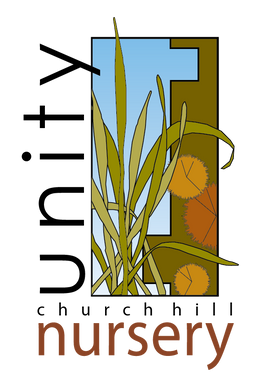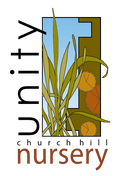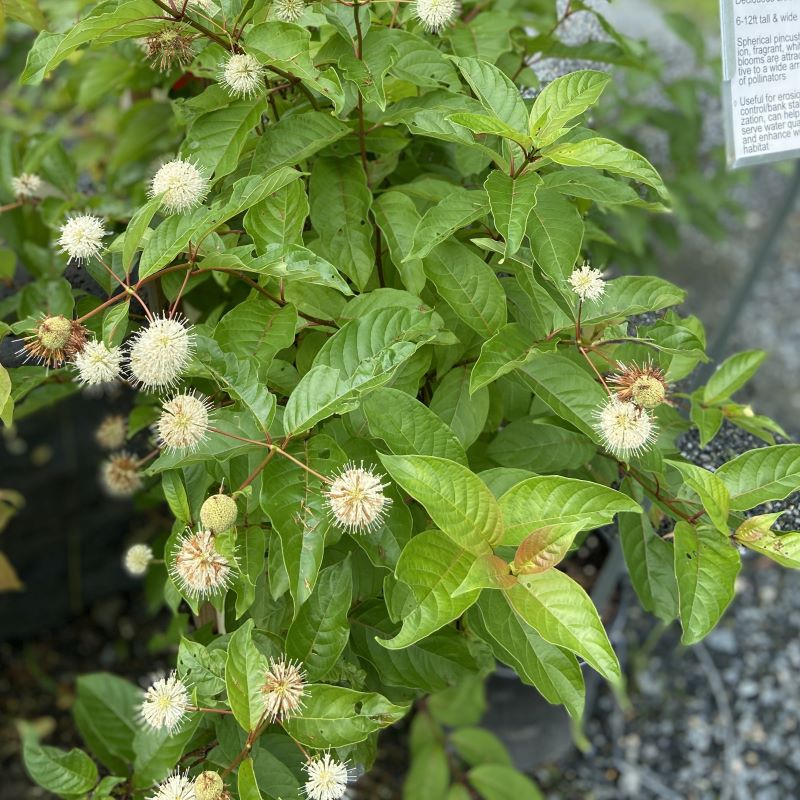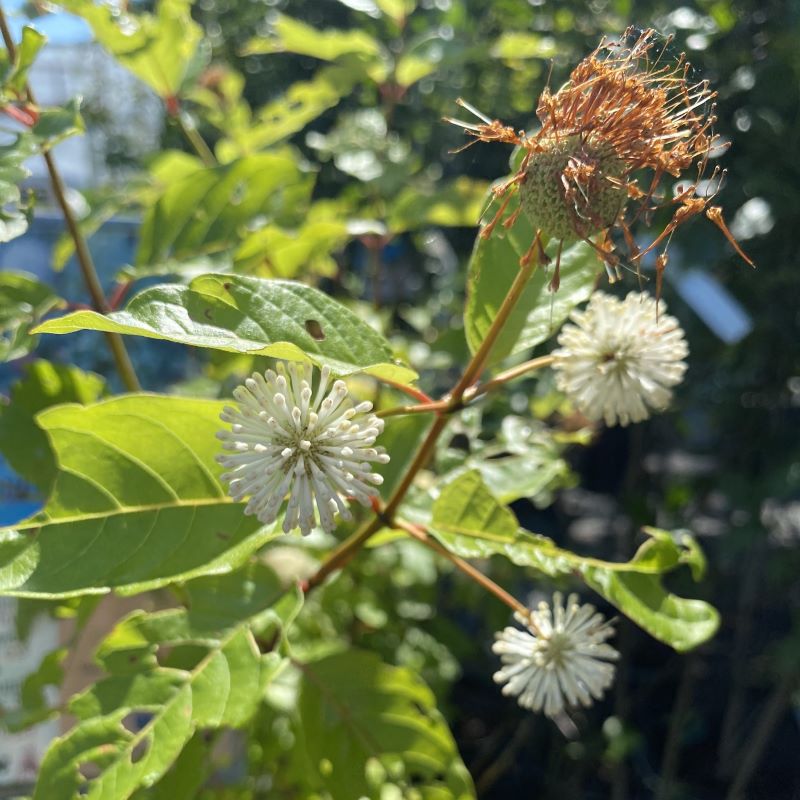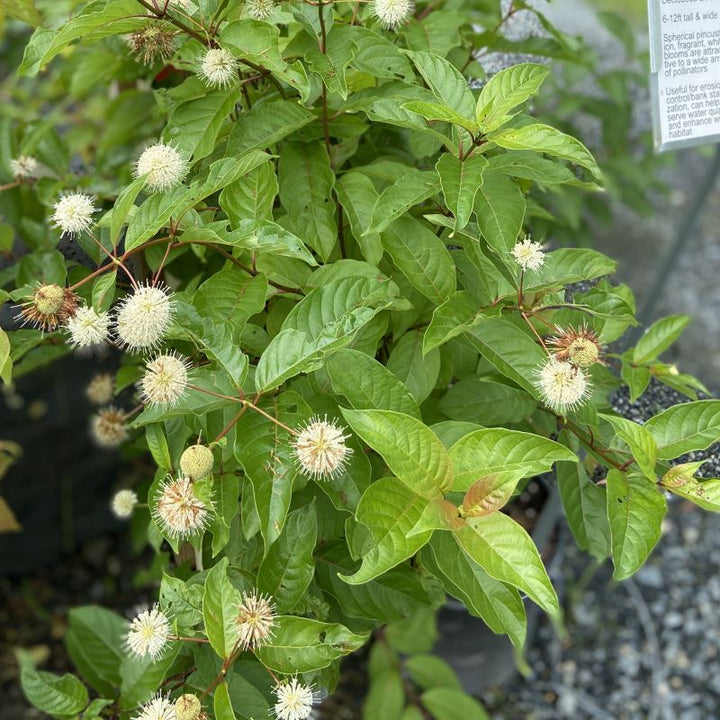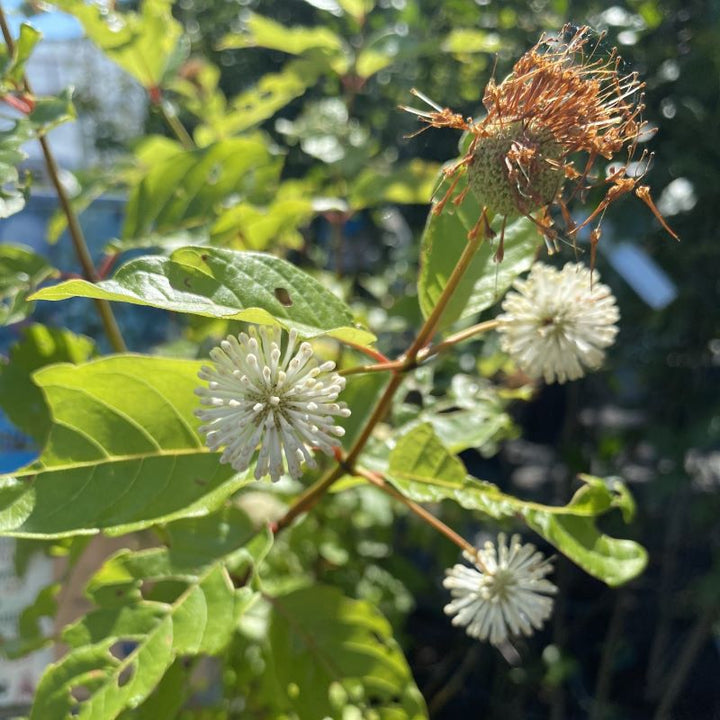Cephalanthus occidentalis (Buttonbush)
- Low stock - 3 items left
- Inventory on the way
Cephalanthus occidentalis, commonly known as buttonbush, is a large deciduous shrub native to much of the eastern United States, as well as some of the southwest. Buttonbush can grow up to 12' tall and up to 8' wide, and is found in nature on riverbanks and in other wet or swampy areas. Used widely in rain gardens, or as an attractive centerpiece to a pollinator garden with wetter soil, buttonbush can tolerate standing water and occasional flooding; Cephalanthus occidentalis is very adaptable to a wide range of soils and is also heat tolerant.
From June to September, buttonbush produces small, fragrant, white, flowers in ball-shaped clusters, giving the flowers an appearance similar to a pincushion; flowers are highly attractive to pollinators, especially bumblebees and a variety of butterflies. Pollinated flowers turn to hard, showy reddish-brown fruits, which are full of seeds and persist into winter, serving as a winter food supply for a variety of small birds and mammals; since they tend to grow near bodies of water, this list may also include ducks and beavers! Cephalanthus occidentalis is a great addition to wetland restoration projects, any watery landscape, any low-lying garden environment, or those that have issues with drainage.
